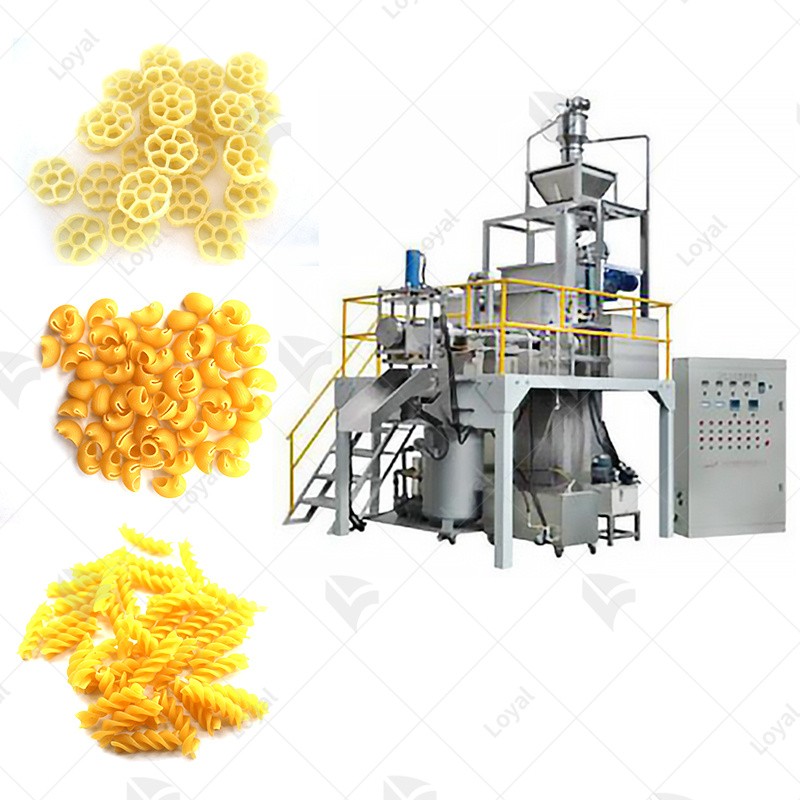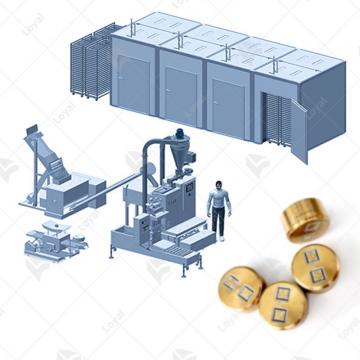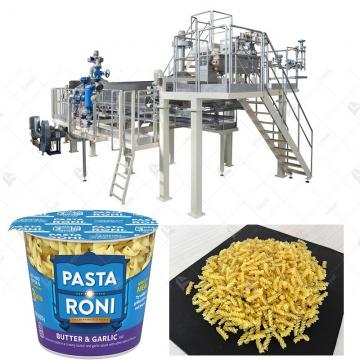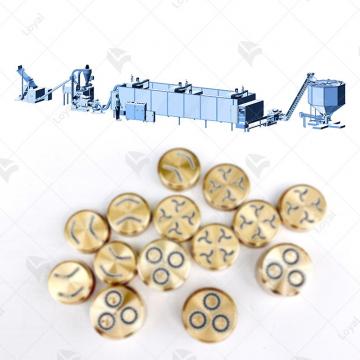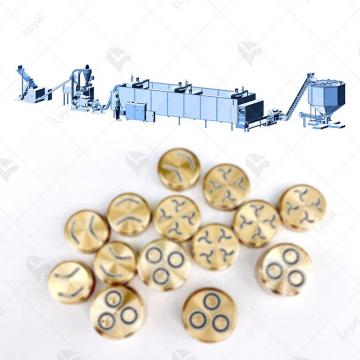Full Automation in Pasta Manufacturing Machines: Achieving Optimal Efficiency and Energy Conservation
Full Automation in Pasta Manufacturing Machines: Achieving Optimal Efficiency and Energy Conservation
Introduction
In the rapidly evolving landscape of food production, full automation in pasta manufacturing machines has emerged as a transformative force. This section defines the concept, emphasizing the paramount importance of achieving optimal efficiency and energy conservation in the industry. Additionally, it provides an overview of how pasta manufacturing machines play a pivotal role in streamlining processes.The Macaroni Pasta Production Line technology of Shandong Luoya Industrial Co., Ltd. has introduced advanced technologies from TECHNOPAST and Lineapasta.
Full automation represents the pinnacle of technological integration in pasta manufacturing, where machines seamlessly handle every aspect of production. Achieving optimal efficiency and energy conservation becomes crucial for meeting the demands of a sustainable and efficient food industry.
Pasta manufacturing machines serve as the backbone of this revolution, enhancing efficiency and contributing to energy conservation. Their significance lies in redefining traditional processes and setting new standards for the entire food production sector.
Understanding Full Automation in Pasta Manufacturing
This section delves into the intricacies of full automation, exploring the components and technologies that drive these advanced systems. The profound impact of full automation on overall production efficiency becomes evident, setting the stage for a detailed exploration.
From high-precision mixing units to adaptive control systems, understanding the intricacies of fully automated pasta manufacturing machines is essential. This knowledge forms the basis for comprehending how these systems elevate efficiency and energy conservation.
Technological Advancements: A Key to Full Automation
This segment dissects the cutting-edge technologies powering full automation in pasta manufacturing. Real-time monitoring, adaptive controls, and other innovations are explored in detail, linking these advancements to increased efficiency and energy conservation.
The implementation of real-time monitoring ensures continuous optimization of processes. Adaptive controls enable machines to dynamically adjust parameters, contributing to both efficiency and energy conservation.
Innovative Features for Efficiency Optimization
This section highlights the innovative features embedded in fully automated pasta manufacturing machines. Precision controls, advanced materials, and streamlined processes collectively contribute to achieving optimal efficiency and energy conservation.
Notable brands such as Barilla, Banza, Jovial, Pastificio Di Martino, and Rao's Homemade have embraced these technologies. The integration of precision controls and advanced materials becomes a cornerstone for unparalleled production rates and substantial energy savings.
Energy Conservation Strategies in Fully Automated Systems
This section provides a comprehensive look at strategies employed in fully automated pasta manufacturing to achieve energy conservation. Sustainable materials, energy-efficient technologies, and their role in reducing environmental impact take center stage.
By adopting sustainable materials, companies contribute to a positive environmental impact. This shift aligns with global efforts towards responsible and eco-friendly food production.
The positive outcomes of adopting energy conservation practices are not only reflected in reduced utility bills but also in a broader commitment to sustainability. Companies embracing these strategies position themselves as leaders in environmental responsibility.
Case Studies: Successes in Full Automation Implementation
Real-world examples of companies successfully embracing full automation are showcased in this section. Insights into how these companies achieved optimal efficiency and significant energy conservation provide valuable lessons for industry-wide adoption.
These esteemed brands serve as beacons of success, demonstrating how full automation has optimized efficiency while achieving notable energy conservation. Their experiences offer valuable insights and best practices for businesses considering the adoption of automated systems.
By examining the experiences of these companies, businesses can identify strategies and approaches that align with their unique requirements. The emphasis is on practical learnings to facilitate a smooth transition towards full automation.
Overcoming Challenges: Implementing Full Automation
While full automation promises transformative benefits, this section addresses the challenges inherent in its implementation. Innovative solutions and strategies to overcome common hurdles are explored, emphasizing the importance of addressing challenges for maximizing efficiency and energy conservation benefits.
Recognition of potential challenges in implementing full automation is the first step towards effective problem-solving. From initial costs to employee training, a proactive approach is crucial.
Innovative solutions range from collaborative training programs to phased implementation, ensuring a smooth transition without compromising efficiency. Addressing challenges strategically enhances the overall success of full automation.
As the pasta manufacturing industry evolves, this section explores emerging trends and advancements in fully automated pasta manufacturing. Predictions for future developments in efficiency, energy conservation, and technological innovations provide a glimpse into the industry's future.
The industry is witnessing a shift towards more sustainable practices and advanced technologies. From robotics to machine learning, these trends are poised to further enhance efficiency and energy conservation in pasta manufacturing.
Conclusion
This section recaps the key points on full automation, optimal efficiency, and energy conservation in pasta manufacturing. The transformative impact of automation on the food production industry is underscored, emphasizing the role of businesses in embracing these technologies for a sustainable and efficient future.
The integration of fully automated pasta manufacturing machines marks a paradigm shift, setting new standards for efficiency and energy conservation. Businesses that recognize and embrace this transformation position themselves as leaders in an industry that demands both innovation and responsibility.
Common Questions About Pasta Manufacturing Machines
What is full automation in pasta manufacturing?
Full automation refers to the complete integration of automated systems in every stage of pasta manufacturing, from ingredient handling to packaging. It aims to optimize efficiency and conserve energy throughout the production process.
How do precision controls contribute to efficiency in pasta manufacturing?
Precision controls in fully automated pasta manufacturing machines ensure accurate and consistent processes. This level of control enhances efficiency by minimizing variations and waste in production.
Are sustainable materials essential for energy conservation in pasta production?
Yes, adopting sustainable materials is crucial for energy conservation. These materials not only reduce the environmental impact but also contribute to a more responsible and eco-friendly pasta production process.
What challenges may arise in implementing full automation?
Challenges in implementing full automation may include initial costs, employee training, and the need for infrastructure upgrades. However, innovative solutions and strategic approaches can overcome these challenges.

